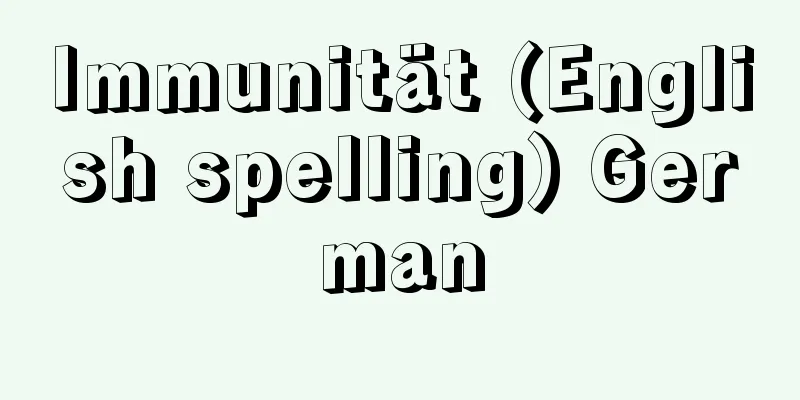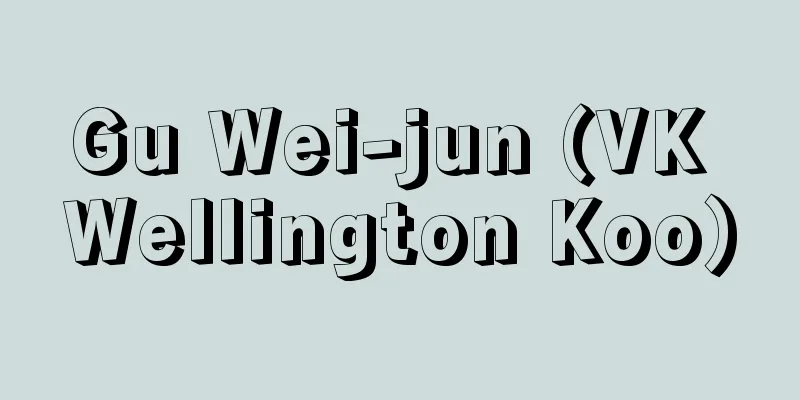Immunität (English spelling) German

|
In medieval Europe, this was a privilege held by church lands (including monasteries) and lay estates. It is similar to the right of non-import and non-entry held by Japanese manors. The inmunitate privilege has both negative and positive aspects. In its negative aspect, it means (1) exemption from paying tribute and labor services to the state that should be paid by the land and inhabitants of the estate, i.e. non-import, and (2) prohibition of state officials (grafs) from entering the estate and exercising their authority (mainly judicial and police powers), i.e. non-entry. In its positive aspect, it means the right of the lord or his representative to exercise authority on behalf of state officials. Since inmunitate is thus a renunciation of the exercise of state power by the state, in principle it requires confirmation of the renunciation from the state, i.e. the granting of inmunitate privileges. However, strangely enough, although many documents of inmunitate grants remain for church lands, almost none remain for secular lands. In order to explain this phenomenon, it is necessary to introduce the idea of spontaneous inmunitate, and currently the prevailing view is that secular lords were able to exercise the right of inmunitate spontaneously, without any grant from the state, based on their ability as aristocrats. Another point to consider is the king's inmunitate policy. By having an inmunitate, the land was detached from the local administrative organization of the state and formed an independent domain of control, so the conventional view was that this was nothing but feudalization of the state. However, a new view has become more prevalent that, in response to the increasing feudalization of the Grafs from the late Carolingian period, the king separated the church land from the Grafs' jurisdiction and placed it under his direct protection by granting the inmunitate, in order to curb feudalization. This policy began under Ludwig the Pious and was expanded on a larger scale under the Ottonian emperors, forming the basis of the imperial church policy during the Saxon and Salier dynasties. [Shosuke Hirajo] Source: Shogakukan Encyclopedia Nipponica About Encyclopedia Nipponica Information | Legend |
|
中世ヨーロッパにおいて、教会領(修道院領を含む)や俗人の所領が有していた特権。日本の荘園(しょうえん)がもっていた不輸不入権にあたる。インムニテート特権は、消極、積極の両面を含む。消極面では、(1)所領内の土地と住民とが負担すべき国家に対する貢租や労役からの免除、すなわち不輸、(2)国家の役人(グラーフ)が所領内に立ち入り、その権限(主として裁判権と警察権)を行使することの禁止、すなわち不入を意味する。積極面では、領主ないしその代理人が、国家の役人にかわってその権限を行使する権利を意味する。 インムニテートとは、このように国家の側からの国家権力の行使の放棄であるから、原則として国家の側からの放棄の確認、すなわちインムニテート特権の賦与を必要とする。だが奇妙なことに、インムニテート賦与の文書は、教会領に関しては多数残存しているにもかかわらず、世俗領に関してはほとんど残っていない。この現象を説明するためには、自生的インムニテートという考え方を導入する必要があり、現在では、世俗領主は貴族としての実力に基づき、国家の側からの賦与によらずに自生的にインムニテートの権利を行使しえたとする見解が支配的になっている。 それとあわせて考慮すべきは、国王のインムニテート政策という観点である。インムニテートをもつことにより、その所領は国家の地方行政組織から離脱して、自立的な支配領域を形成するわけであるから、従来の考え方では、それは国家の封建化にほかならない、とされたのであるが、カロリング時代後期よりグラーフ層の封建領主化が著しくなるのに対し、国王は教会領をグラーフの管轄から切り離し、インムニテートを与えることで、これを自己の直接保護下に置き、封建化の歯止めにしようとした、という新しい考え方が有力になってきている。このような政策は、ルードウィヒ敬虔(けいけん)帝の治下から始まり、オットー諸帝のもとでいっそう大規模に展開されて、ザクセン朝、ザリエル朝時代の帝国教会政策の基礎をつくりあげたと考えられる。 [平城照介] 出典 小学館 日本大百科全書(ニッポニカ)日本大百科全書(ニッポニカ)について 情報 | 凡例 |
>>: Immission (English spelling) [Germany]
Recommend
Rondeletiidae
…A general term for marine fishes belonging to th...
The Dial
…Transcendentalism was based on the claim that tr...
Oshu Highway - Oshu Kaido
<br /> The remains of a highway in Ichinohe ...
Brown rice - Genmai
This refers to unpolished rice with only the husk...
Bushel (English spelling)
A unit of volume in the imperial system. The symbo...
Seasonal adjustment
…Seasonal patterns are often considered exogenous...
Tsunakata
The title of a Nagauta song. The correct title is...
Sigismund's Reforms - Sigismund's Reforms (English spelling) Reformatio Sigismundi [Latin]
This document is a reform document for the late me...
Tomistoma taiwanicus (English spelling) Tomistoma taiwanicus
...We can see that Honshu had a climate similar t...
Eustachio, Bartolomeo
[Born] 1524? San Severino [Died] August 1574. Foss...
gṛhapati (English spelling) grhapati
…Household rituals were very important, and by th...
Military explosives
High explosives are used primarily for military pu...
Fumaric acid - Fumarusan (English spelling)
An unsaturated dicarboxylic acid. It is a geometr...
Akademee - Akademee
…As its name suggests, Demekin (Demekin) has larg...
Barriera (English spelling) Peruvian wild grape
A genus of woody climbing plants in the Menisperma...









